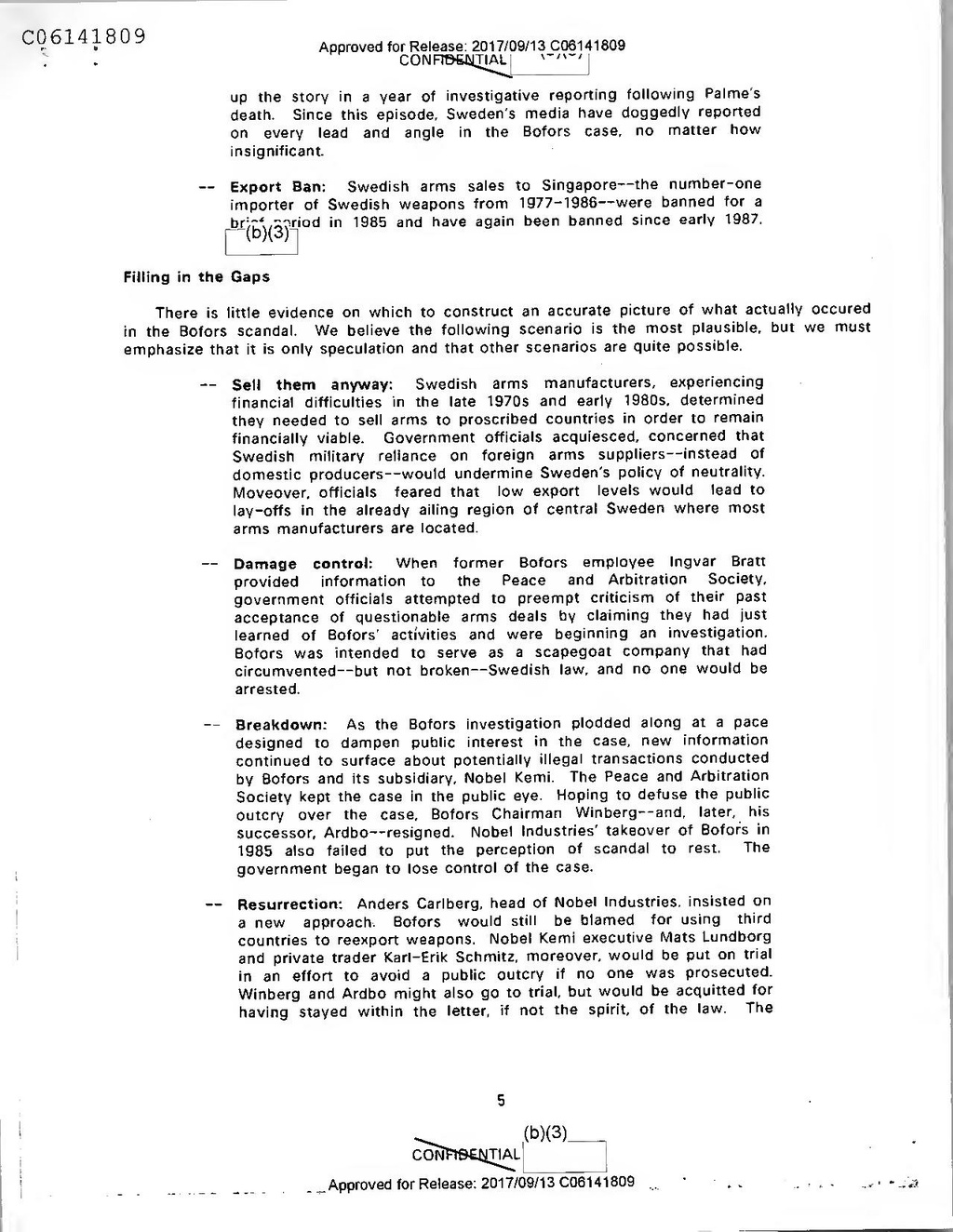up the story in a year of investigative reporting following Palme's death. Since this episode, Sweden's media have doggedly reported
every lead and angle in the Bofors case, no matter how insignificant
on
Export Ban: Swedish arms sales to Singapore--the number-one importer of Swedish weapons from 1977-1986--were banned for a brinqriod in 1985 and have again been banned since early 1987.
(b)(3)
Filling in the Gaps
There is little evidence on which to construct an accurate picture of what actually occured in the Bofors scandal. We believe the following scenario is the most plausible, but we must emphasize that it is only speculation and that other scenarios are quite possible.
Sell them anyway:
Swedish arms manufacturers, experiencing financial difficulties in the late 1970s and early 1980s, determined they needed to sell arms to proscribed countries in order to remain financially viable. Government officials acquiesced, concerned that Swedish military reliance on foreign arms suppliers--instead of domestic producers--would undermine Sweden's policy of neutrality. Moveover, officials feared that low export levels would
lead to lay-offs in the already ailing region of central Sweden where most arms manufacturers are located.
Damage control: When former Bofors employee Ingvar Bratt provided information to
the
Peace and Arbitration Society, government officials attempted to preempt criticism of their past acceptance of questionable arms deals by claiming they had just learned of Bofors' activities and were beginning an investigation. Bofors was intended to serve as a scapegoat company that had circumvented--but not broken--Swedish law, and no one would be arrested.
Breakdown: As the Bofors investigation plodded along at a pace designed to dampen public interest in the case, new information continued to surface about potentially illegal transactions conducted by Bofors and its subsidiary, Nobel Kemi. The Peace and Arbitration Society kept the case in the public eye. Hoping to defuse the public outcry over the case, Bofors Chairman Winberg--and, later, his successor, Ardbo--resigned. Nobel Industries' takeover of Bofors in 1985 also failed to put the perception of scandal to rest. The government began to lose control of the case.
--
Resurrection: Anders Carlberg, head of Nobel Industries, insisted on a new approach Bofors would still be blamed for using third countries to reexport weapons. Nobel Kemi executive Mats Lundborg and private trader Karl-Erik Schmitz, moreover, would be put on trial in an effort to avoid a public outcry if no one was prosecuted. Winberg and Ardbo might also go to trial, but would be acquitted for having stayed within the letter, if not the spirit, of the law. The
5
(b)(3). CONFIDENTIAL - Approved for Release: 2017/09/13 C06141809
..
